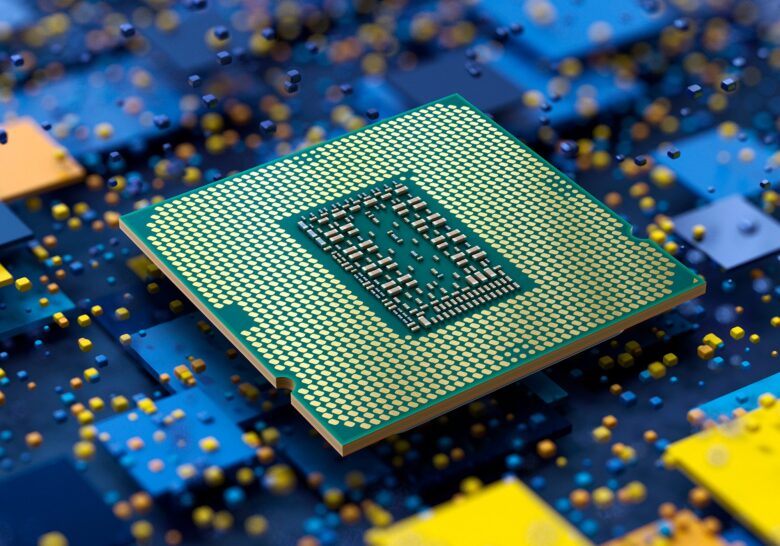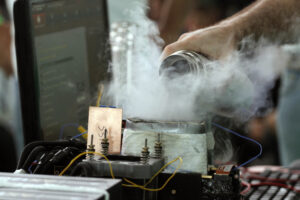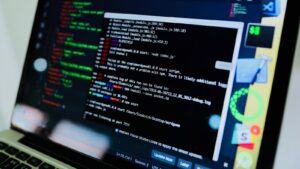Unlocking the full potential of your PC can be like solving a puzzle – a tantalizing blend of efficiency, speed, and power that promises to elevate your computing experience to new heights. As technology advances at breakneck speed, we find ourselves constantly seeking ways to maximize our PC’s performance, to push its limits, and to create a seamless digital world tailored to our needs. But how do we truly know how our devices measure up in the ever-evolving landscape of technology? Fear not, for we are about to embark on a journey through the intricate realm of benchmarking, a guide designed to navigate you through the labyrinth of assessing and improving PC performance. Dive into this article and discover the secrets to mastering the art of benchmarking, unlocking the untapped potential of your digital companion, and embracing a new realm of computing excellence. Welcome to the world of benchmarking, where boundaries are shattered, and PCs transcend their ordinary existence.
Understanding the Importance of Benchmarking for PC Performance Evaluation
Benchmarking is an essential process for evaluating and improving the performance of your PC. By comparing the performance of your system to standardized tests and known metrics, benchmarking provides valuable insights into the capability of your PC. Whether you are a casual user or a professional looking to maximize productivity, mastering benchmarking techniques is crucial.
One of the key reasons why benchmarking is important is that it allows you to identify the strengths and weaknesses of your PC. By running various tests, you can determine which components of your system are performing well and which ones may need further optimization. This knowledge enables you to make informed decisions when upgrading your PC, ensuring that you invest in components that will have the most significant impact on overall performance.
Benchmarking also plays a vital role in assessing how your PC performs under different workloads and conditions. By simulating real-life scenarios and stress tests, you can gauge the stability and reliability of your system. This is especially crucial if you rely on your PC for tasks such as gaming, video editing, or running resource-intensive applications. By identifying potential bottlenecks and areas for improvement, benchmarking enables you to fine-tune your PC’s performance to meet your specific needs and requirements.
Benefits of benchmarking for PC performance evaluation:
- Provides insights into the strengths and weaknesses of your PC
- Helps make informed decisions when upgrading components
- Assesses the stability and reliability of your system
- Identifies potential bottlenecks and areas for improvement
- Fine-tunes PC performance to meet specific needs
Mastering benchmarking is not just about numbers and scores; it is about understanding the underlying factors that contribute to PC performance. By utilizing the right benchmarking tools and techniques, you can unlock the true potential of your PC, optimize its performance, and ensure a smooth and efficient computing experience.
Evaluating Key Performance Metrics for Accurate PC Assessment
In the vast world of personal computing, assessing and improving PC performance is a fundamental task for users seeking optimal functionality. However, without a comprehensive understanding of key performance metrics, accurately evaluating a computer’s capabilities can be a challenging endeavor. In this post, we delve into the realm of benchmarking, unveiling the secret to mastering this invaluable process for PC assessment and enhancement.
When it comes to benchmarking, it is crucial to identify and select the right performance metrics that truly reflect the strengths and weaknesses of a PC. By meticulously choosing relevant metrics, users can gain insightful knowledge about various aspects of their computer’s performance, allowing them to pinpoint areas that need improvement. Some key performance metrics that should be considered include:
1. Processing Power: The central processing unit (CPU) lies at the heart of any PC, determining its overall computational capacity. Assessing CPU performance involves examining metrics such as clock speed, number of cores, and cache size. By analyzing these aspects, users can evaluate the speed and efficiency of their PC’s processing capabilities.
2. Graphics Performance: For avid gamers and graphic designers, evaluating graphics performance is paramount. Metrics like frame rate, rendering time, and graphic memory usage are crucial in gauging a PC’s ability to handle visually demanding tasks. By accurately assessing graphics performance, users can ensure a smooth and immersive experience while indulging in resource-intensive applications.
3. Storage Speed: Whether it’s loading files, launching applications, or booting up the system, storage speed plays a significant role in determining overall PC performance. Metrics such as random read/write speeds and latency can provide insights into a computer’s storage performance. Considering these metrics helps users determine if their PC’s storage setup is optimized for swift data access and retrieval.
Mastering the art of benchmarking requires a deep understanding of these key performance metrics. By considering factors like processing power, graphics performance, and storage speed, users can accurately assess and improve their PC’s performance. So, embrace the power of benchmarking and unlock the true potential of your personal computer!
Identifying Bottlenecks and Performance Limitations in PC Systems
When it comes to maximizing the performance of your PC system, understanding and identifying bottlenecks and limitations is crucial. By conducting thorough benchmarking, you can gain valuable insights into the areas that are slowing down your system and find ways to improve its overall performance.
To start your benchmarking journey, it is important to select the right tools and software that suit your specific needs. There are various benchmarking programs available, both free and premium, that can help you measure and compare the performance of different hardware components in your PC system. Some popular options include 3DMark for graphics performance, PCMark for overall system performance, and CrystalDiskMark for storage speed.
Once you have chosen the benchmarking software, it’s time to identify the bottlenecks in your PC system. Focus on the following areas:
- CPU: The central processing unit (CPU) is the brain of your PC. Check for high CPU usage during intensive tasks or gaming. If your CPU is constantly running at 100% capacity, it may be the cause of performance limitations.
- Graphics Card: A powerful graphics card is essential for smooth gaming and visual performance. Observe frame rates, rendering times, and graphic settings during benchmarking to determine if your graphics card is capable of handling the demands of the applications you use.
- Memory: Insufficient RAM can lead to frequent system slowdowns and crashes. Analyze memory usage during demanding tasks to ensure you have enough memory capacity. Consider upgrading your memory if you frequently experience performance limitations due to lack of RAM.
- Storage: Slow storage devices can significantly impact system performance. Benchmark your storage devices, such as hard drives or solid-state drives (SSDs), to check for read and write speeds. Upgrading to an SSD can result in significant performance improvements.
By mastering benchmarking and understanding the performance limitations of your PC system, you can make informed decisions to optimize its performance. Identify the bottlenecks, consider hardware upgrades if necessary, and tweak settings to unlock the full potential of your PC.
Implementing Strategies to Improve PC Performance based on Benchmark Analysis
In today’s fast-paced world, where efficiency is key, having a high-performing PC is essential. But how do you know if your PC is living up to its full potential? That’s where benchmarking comes in. By conducting a benchmark analysis, you can assess your PC’s performance and identify areas for improvement. In this section, we will explore strategies to implement based on benchmark analysis, ensuring your PC operates at its peak performance.
1. Optimize your hardware configuration:
– Upgrade your RAM: Increasing the amount of memory can significantly enhance your PC’s performance, allowing for smoother multitasking and faster load times.
- Invest in a Solid State Drive (SSD): Replace your traditional hard drive with an SSD to experience lightning-fast boot times and quicker file transfers.
– Check your CPU: Ensure your processor is running at its optimal speed and consider upgrading if necessary.
2. Fine-tune your software settings:
– Remove unnecessary startup programs: Over time, your PC accumulates a list of programs that automatically launch at startup, hogging valuable system resources. Disable any unnecessary programs to free up memory and improve overall performance.
- Update your drivers: Outdated drivers can result in compatibility issues and slow down your PC. Regularly check for driver updates and install them to ensure compatibility and optimal performance.
– Disable visual effects: While visual effects may enhance the aesthetics of your PC, they can also consume valuable system resources. Disable unnecessary visual effects to streamline performance.
3. Keep your PC clean and optimized:
- Regularly clean your PC: Dust and debris can accumulate inside your PC over time, impacting its cooling efficiency and overall performance. Clean your PC, paying special attention to the fans and vents, to prevent overheating and maintain optimal performance.
– Run regular disk cleanups: Use the built-in disk cleanup tool to remove temporary files, system files, and other unnecessary data that can clutter your PC’s storage space and slow it down.
- Conduct routine maintenance: Regularly update your operating system, antivirus software, and other essential programs to ensure your PC is protected from threats and operating at its peak performance.
By implementing these strategies based on your benchmark analysis, you can maximize your PC’s performance, enabling you to breeze through even the most demanding tasks. Remember, investing time and effort into optimizing your PC today will pay off in increased productivity and a smoother user experience tomorrow. So, take charge of your PC’s performance and unleash its full potential!
Exploring Advanced Techniques to Optimize and Fine-Tune PC Performance
In today’s highly digital world, having a high-performing PC is essential for smoothly running applications, handling intensive tasks, and maximizing productivity. However, as technology evolves, so does the need to optimize and fine-tune PC performance. Whether you’re a tech enthusiast or a casual user, this post will dive deep into advanced techniques that will take your PC performance to the next level.
1. **Overclocking:** One of the most effective ways to squeeze out every ounce of performance from your PC is through overclocking. This technique involves increasing the clock speed of your CPU and GPU to achieve higher processing power. By modifying specific hardware settings, you can significantly enhance the performance of your PC. However, it’s important to note that overclocking should be done with caution, as it can generate excess heat and potentially damage your components if not implemented correctly. Always refer to reliable guides and tools, and monitor your system’s temperature to ensure a stable and safe overclock.
2. **Fine-Tuning Software Settings:** Aside from hardware optimizations, delving into your software settings can have a significant impact on PC performance. Start by disabling unnecessary startup programs to minimize the burden on your system resources. Customize your power settings to balance energy consumption and performance, and consider adjusting your visual effects to prioritize responsiveness. Additionally, optimizing your Windows paging file and increasing virtual memory allocation can prevent slowdowns when dealing with resource-intensive applications. Remember to periodically update your software and keep drivers up-to-date, as newer versions often bring performance enhancements and bug fixes.
3. **Utilizing Advanced Benchmarking Tools:** To effectively measure, compare, and improve your PC’s performance, utilizing benchmarking tools is crucial. These tools assess various aspects of your system, including CPU, GPU, memory, and storage. By running benchmark tests, you can identify potential bottlenecks, detect hardware issues, and determine areas in which you can make adjustments to optimize performance. Popular benchmarking tools such as 3DMark, PassMark, and Geekbench provide comprehensive reports and scores that can guide your optimization efforts. Remember to research which benchmarks are most relevant to your specific needs and seek comparisons and reviews to choose the most suitable tool for your requirements.
When it comes to optimizing and fine-tuning your PC’s performance, exploring advanced techniques can unlock a world of possibilities. Whether it’s overclocking your hardware, fine-tuning software settings, or utilizing benchmarking tools, there are various paths to achieve ultimate performance. Dive deeper into each technique, experiment with different settings, and keep a close eye on your system’s behavior to strike the perfect balance between power and stability—ultimately creating a seamless and efficient computing experience.
Final Thoughts
In the exhilarating game of PC performance, where speed is the name of the game and efficiency reigns supreme, you are now armed with the powerful knowledge of benchmarking. As we conclude this guide to mastering the art of benchmarking, you can confidently navigate the vast seas of PC performance with your head held high and your fingers poised on the keys.
Throughout this journey, we have unraveled the mysteries of benchmarking, peering deep into the heart of our beloved machines to measure their prowess. You have learned how to select the right benchmarks for your specific needs, carefully tailoring your tests to uncover the true potentials of your system. With each click and calculation, you have unearthed the hidden gems of your PC’s capabilities, transforming raw numbers into the symphony of performance.
But benchmarking is not just about numbers and fancy graphs; it is about unearthing the untapped potential, revealing the boundaries to be pushed and shattered. Armed with this newfound understanding, you possess an arsenal of knowledge to enhance your PC’s performance. From adjusting hardware configurations to optimizing software settings, you can now sculpt your system into a masterpiece of speed and efficiency.
However, as powerful as benchmarking may be, it is merely a tool—a compass guiding you on the path to greatness. It is up to you to take this knowledge and create the possibilities that stretch beyond the benchmarks. Embrace the spirit of innovation, explore uncharted territories, and challenge the limits of what is deemed possible. Let benchmarking be the springboard from which you launch yourself into the ever-evolving realm of PC performance.
So, fellow adventurers, as we sail towards the horizon of limitless performance, always remember that mastering benchmarking is just the beginning. The pursuit of excellence lies not in the benchmarks themselves, but in the journey towards improvement. With curiosity as your compass and determination as your yoke, set forth and reimagine what your PC can achieve.
May your benchmarks be high, your performance be swift, and your PC never cease to amaze. Onward, brave benchmarkers, for the possibilities are endless!



